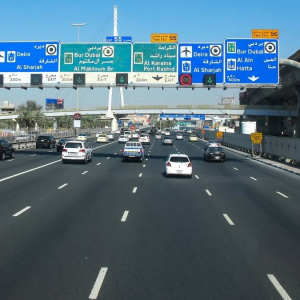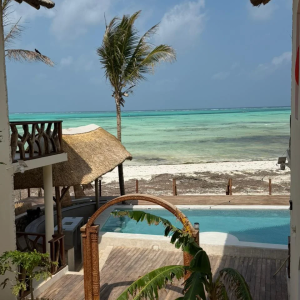In a significant policy move aimed at enhancing transparency, communication, and accountability in the education sector, the Abu Dhabi Department of Education and Knowledge (ADEK) has introduced a new regulation requiring private schools to sign annual contracts with students’ parents. This initiative marks a major shift in how parent-school relationships are formalized in the Emirate, ensuring both parties are aligned on educational expectations, responsibilities, and rights.
A Transformative Step in Education Governance
The new annual contract system will become mandatory for all private schools in Abu Dhabi starting from the 2024-2025 academic year. The contract will clearly outline key elements of the student’s educational journey—including tuition fees, academic calendar, policies related to behavior and discipline, transportation services, grievance mechanisms, and expectations from both schools and families.
The aim is to foster a structured and transparent partnership between educational institutions and parents, thereby promoting student success through shared responsibility. ADEK believes this initiative will streamline communication, prevent potential disputes, and create a more collaborative environment for learners.

According to ADEK, this annual agreement serves not only as a formal document but as a mutual understanding that elevates the accountability of both stakeholders in the child’s development—academically, socially, and emotionally.
Bridging Gaps: Why It Matters
Over the years, parents in the capital have raised concerns about abrupt changes in tuition fees, unclear policies around extracurricular activities, inconsistent communication, and lack of proper grievance resolution channels. On the other hand, schools have expressed the need for parents to be more engaged, follow guidelines, and respect institutional frameworks.

This new contract system aims to bridge these gaps. With detailed clauses addressing academic expectations, attendance rules, parental involvement, and school obligations, both parties will be better informed and better prepared to navigate the school year.
The contract is not designed to be punitive. Rather, it is structured to build trust and transparency, minimizing ambiguity while maximizing student welfare and institutional harmony.
Standardization with Flexibility
ADEK has announced that while the framework of the contract will be standardized to ensure consistency across all private schools, individual institutions will have the flexibility to include clauses that are unique to their curriculum models and operational structures. Whether a school follows the British, American, IB, Indian, or other systems, the template can be adapted accordingly.
Importantly, the contract will also clarify the terms related to refund policies, dispute resolution mechanisms, and disciplinary actions. It will protect parents from sudden or unauthorized fee hikes while empowering schools to define boundaries around academic performance and behavioral standards.
Enhancing Parent-School Engagement
For too long, the parent-school relationship has often been informal, leaving room for misunderstandings or unclear expectations. The new policy encourages consistent dialogue between educators and families through clearly defined communication channels outlined in the contract.
With parents having access to structured grievance procedures and escalation points, schools are now more accountable in resolving issues timely and effectively. This proactive approach will likely reduce the number of informal complaints or escalations to higher authorities.
Moreover, the contract will ensure that both parents and educators commit to supporting the holistic growth of the student, going beyond academics to include mental well-being, extracurricular engagement, and digital citizenship.
What It Means for Parents
From a parental perspective, the annual contract offers several advantages:
- Financial Clarity: Transparent tuition breakdowns and refund clauses mean no surprise payments mid-year.
- Defined Roles: Expectations regarding parental involvement and support for homework, attendance, and school policies are laid out clearly.
- Accountability: Mechanisms for addressing grievances, delayed responses, or changes in school terms are formalized.
- Empowerment: Parents gain a greater say in their child’s education with well-outlined responsibilities from the school side.
With increasing numbers of expat families in Abu Dhabi choosing private education, this level of clarity becomes even more critical. The diversity of backgrounds and cultural expectations often leads to differing interpretations of school policies—an issue the contract aims to resolve.
What It Means for Schools
For schools, this system is a welcome change that introduces more professionalism in their engagement with families. It empowers institutions to set realistic expectations for student behavior, academic performance, and parental support.
School leaders can refer to the contract when addressing repeated absenteeism, poor academic performance, or behavioral issues. It also allows them to educate parents on their role in nurturing discipline and focus at home.
Schools will also be required to ensure that their staff are trained to handle these contracts and educate parents—particularly those who are new to the UAE—about what these terms mean and how they can be beneficial.
Digital and Multilingual Access
To make the process seamless, ADEK will roll out a digital platform through which contracts can be reviewed, signed, and archived. Parents will receive timely notifications and will be able to access their contracts anytime through the ADEK portal or participating school systems.
Recognizing the multilingual makeup of the Abu Dhabi population, contracts will be available in multiple languages including Arabic, English, Hindi, and possibly more in the future, ensuring all families understand what they are agreeing to.
Reactions from the Community
The response to the initiative has been overwhelmingly positive. Many parents see it as a long-overdue measure that brings structure and transparency to an emotionally and financially significant relationship.
Ritika Sharma, a parent of two children studying in an American curriculum school, commented, “This is a great initiative. It gives us peace of mind knowing exactly what we’re agreeing to at the beginning of the year. It’s also good for the school to hold us accountable too. We’re partners in our children’s growth.”
School administrators have also expressed support, calling the contracts a useful tool in ensuring both sides are on the same page. “This will help reduce last-minute confusion or unrealistic expectations. It allows us to operate with more professionalism,” said a principal from a British-curriculum private school in Abu Dhabi.
Setting a Precedent for the Region
Abu Dhabi’s move to formalize the parent-school relationship could set a precedent for other emirates and even the broader GCC region. As private education continues to evolve and attract investment, mechanisms such as annual contracts ensure that quality assurance is not just limited to academics but includes institutional conduct and parent satisfaction.
ADEK’s latest initiative represents a broader vision—of fostering an educational ecosystem that is transparent, collaborative, and deeply invested in each child’s success. It’s not just about formal paperwork, but about building a future where schools and families walk hand-in-hand to shape empowered learners and responsible citizens.
Looking Ahead
While challenges may arise during the initial implementation—such as familiarizing parents with contract clauses, ensuring digital literacy, or dealing with late signings—the long-term benefits far outweigh the hurdles. As these contracts become a yearly norm, they are likely to transform how private education is perceived and practiced in Abu Dhabi.
The annual parent-school contract is more than a policy—it’s a promise. A promise to create schools that listen, parents who engage, and children who thrive in a nurturing, respectful, and clearly defined learning environment.
Do follow Uae stories for more Updates
Sanaiya Abu Dhabi: The Industrial Hub That’s Powering Progress












